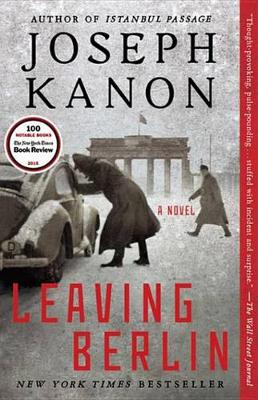
Berlin 1949. Alex Meier, a young Jewish writer, fled the Nazis for America before the war. But the politics of his youth have now put him in the crosshairs of the McCarthy witch-hunts. Faced with deportation and the loss of his family, he makes a desperate bargain with the fledgling CIA: he will earn his way back to America by acting as their agent in his native Berlin. But almost from the start things go fatally wrong. A kidnapping misfires, an East German agent is killed, and Alex finds himself a wanted man. Worse, he discovers his real assignment - to spy on the woman he left behind, the only woman he has ever loved. Changing sides in Berlin is as easy as crossing a sector border. But where do we draw the lines of our moral boundaries? Betrayal? Survival? Murder?
Filled with intrigue and the moral ambiguity of conflicted loyalties, Leaving Berlinis a compelling thriller and a love story that brings a shadowy period of history vividly to life.
Almost four years after World War II, Berlin is a mess, divided in two. The east is occupied but the political ideas from the Soviet Union and the Allies are trying to control the west. This power struggle will later divide Germany into two with the erecting of the Berlin wall in 1961. Alex Meier is a young Jewish writer who managed to flee Nazi Germany to find a home in America. Only he found himself in the crosshairs of Joseph McCarthy during his “Red Scare” witch hunts. Alex and his family are now facing deportation; that was until he was given an alternative by the CIA but is this a solution at all?
The setting for Leaving Berlin is fascinating, the rebuilding and restoration of Germany is interesting enough as it is, but then you have the political struggle and influences of America and the Soviet Union as well. The American propaganda towards communism plays a big part in this espionage novel, and reading a book about a country being torn apart by the Cold War was really interesting. I am very interested in the history behind the Cold War, especially when it comes to the way the media was used to manipulate and of course I am interesting in the Soviet Union. As far as this novel goes, it was entertaining and I enjoyed reading it, however the setting and political history interested me more than the plot. I would have enjoyed a non-fiction novel of post-war Berlin more than Leaving Berlin, but that does not mean I regretted reading it.
Reading updates
-
Started reading
-
7 August, 2015:
Finished reading
-
7 August, 2015:
Reviewed
